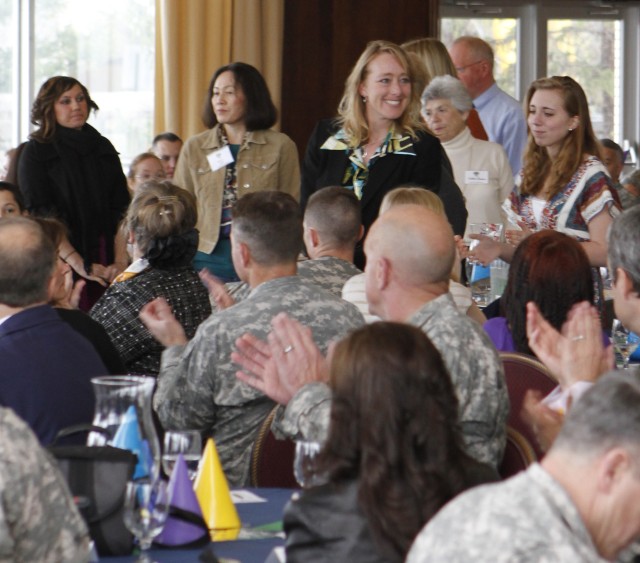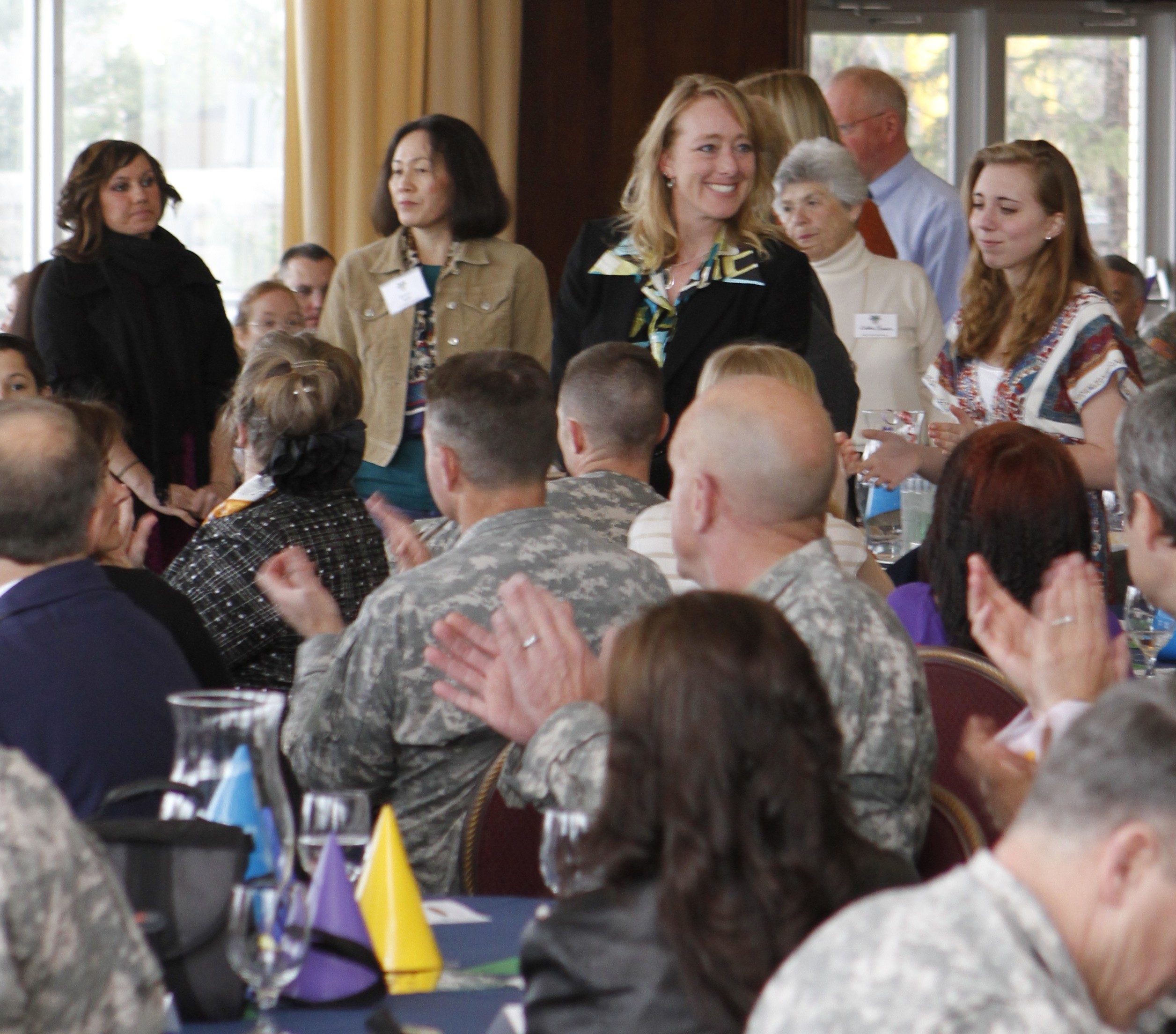WEST POINT, N.Y. (April 13, 2011) -- Volunteerism has a long and spirited history in America going back to when the colonies were struggling for independence. It was Benjamin Franklin who began the first volunteer firefighting company. Volunteers organized boycotts of British products and collected funds for the Revolutionary War. During the Civil War, women's aid societies cropped up to make bandages, shirts, towels, bedclothes and tents for Soldiers.
That spirit of volunteerism hasn't changed today. Both President George H. W. Bush and President Barack Obama sought volunteer initiatives early in their administrations.
Bush was the first president to establish an office within the White House dedicated to promoting volunteerism with the Thousand Points of Light campaign. Obama initiated the United We Serve call to service in 2009.
Volunteerism is a way of life in the Army, as evident with the establishment of the Army Volunteer Corps in 2005.
At West Point, volunteerism is highly regarded as part of the greater 47-month learning experience for cadets.
"When cadets witness a member of the staff and faculty participating as a volunteer, regardless of the activity, it sends a powerful message about the positive concept of selfless service-a fundamental Army value," Lt. Gen. David H. Huntoon Jr., West Point superintendent, said.
As coordinator for the West Point Volunteer Corps, Christina Overstreet not only helps volunteers find positions but matches positions to the volunteers' skills.
West Point has about 1,200 volunteers currently active in the community with an estimated 85,000 hours of service contributed in 2010.
"I work with volunteers to find out what their interests are and what they hope to gain from volunteering and try to match them up with organizations that could best utilize their skills, even if it means creating a new position," Overstreet said.
Each year, West Point honors volunteers at a Volunteer Recognition Ceremony recognizing those dedicated individuals who heed the call for youth sports coaches, aiding Families of deployed Soldiers, entertaining and celebrating children with the annual Month of the Military Child event and cadets volunteering to help at the Special Olympics, to name a few.
"Volunteers are always needed in a variety of areas," Overstreet said. "We have one-time, short-term and long-term volunteer opportunities. What I tell people is West Point offers a wide variety of unique volunteer opportunities, from assisting with graduation events, Puppies Behind Bars, where volunteers help socialize service dogs to work with wounded Soldiers and helping with Red Cross blood drives."
Overstreet said volunteering is something everyone can do regardless of their schedule, experience or skill.
"As a military spouse, I've always thought of volunteering within the military community as my way of serving without wearing a uniform," she said. "It is important to give back to our communities whether our schedules permit us to volunteer one hour per day or one hour per month."
Richard Walls, event coordinator for the Soldier Family Assistance Center, a part of West Point's Army Community Service, began volunteering when he reached the age of 18 and signed up for the volunteer fire department in his community.
He has been volunteering ever since for many different organizations over the years.
"SFAC supports the Warrior Transition Unit. I spend several days a week either on post or networking from home and in my community to bring positive events both on and off post to our recovering Soldiers," Walls said.
Walls also volunteers for ACS and the Red Cross during their events on post.
"Volunteering is important as it helps to define the character of your community, a place where I have chosen to raise my family," he said. "Good citizenship brings out the best in (the volunteers) surroundings and that is what I want for my children. They in turn will do the same for the next generation."
Diana Ringquist, the volunteer community chairperson and leader for the West Point Girl Scouts, said volunteerism is highly valued in her family.
"Volunteerism has been a lifelong activity for me," Ringquist said. "I grew up in the country and it was essential that neighbors helped neighbors and then, when my daughter decided to join the Girl Scouts, I was happy to be a helper-mom.
"When we PCS'd to West Point, I was hoping to be a co-leader again (as I was in my last unit)," she added. "This was when West Point Girl Scouts lost their entire service unit board and about 90 percent of their leaders and only part way through their validation. Faced with the decision to step up or watch Girl Scouting at West Point dissolve, the choice was obvious--I would ensure that the Girl Scouts got through revalidation and then step aside so someone more qualified and familiar with the area could take over. That was under two years ago, and I'm still the VCC and POC for West Point."
Ringquist said volunteering is important because just throwing money at things isn't always a solution.
"Someone needs to do the actual work, provide the human connection, reach out to others and create awareness to connect with others," she said. "If it weren't for volunteers, many organizations would not exist, many services would disappear and many of our neighbors would suffer, as would our communities and our world."


Social Sharing